FLASH FRIDAY is a weekly content series looking at the past, present and future of capital markets trading and technology. FLASH FRIDAY is sponsored by Instinet, a Nomura company.
So far in this Flash Friday summer series, Traders Magazine has profiled young employees at Instinet and T. Rowe Price.
Today we meet a quartet of Nasdaq 20-somethings for a glimpse of the future at the global exchange operator.
Nick Djamalidinov, Senior Business Analyst, Nasdaq Trade Surveillance
Briefly describe your educational background and work experience to date.
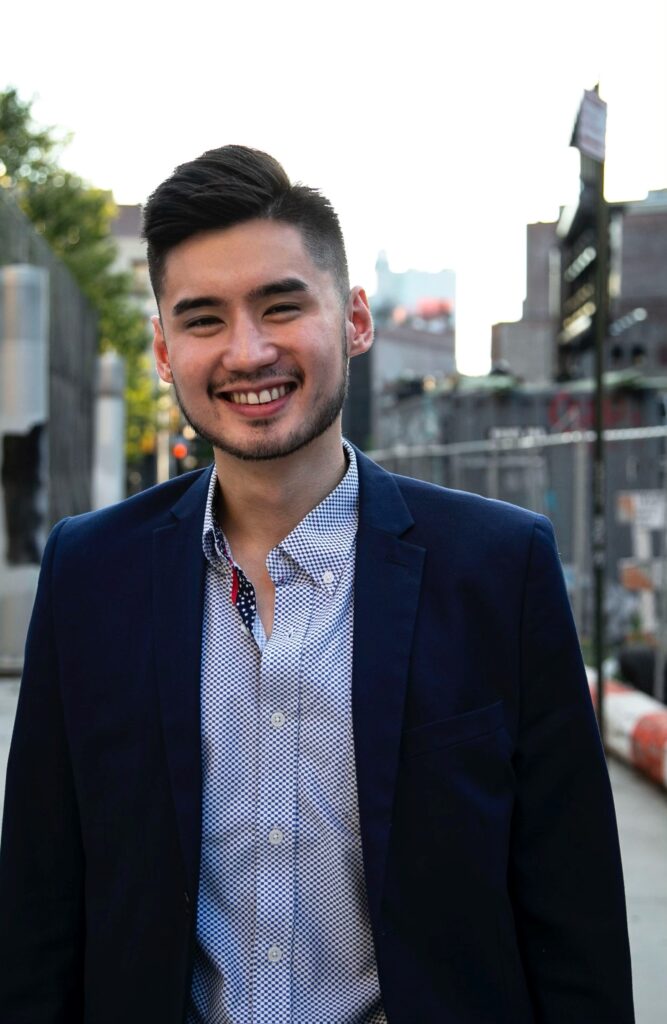
I went to Baruch College in NYC and graduated with a B.S. in Finance. Outside of college, I’ve taken classes in SQL and Tableau, and I self-study Python.
How did you get interested in the world of finance / exchanges / fintech?
It was easily when I took my first finance class in college. Finance had always been something of a black box to me. Previously, I had a hard time understanding what interest rates were or the concept of the time value of money. This class came rushing in with all the answers and more. And I’m still fascinated by finance. From the simple concepts like perpetuities to more complex valuation methods, it really changed the way I see the world. I also began taking an active interest in the stock market because I saw how much finance affects people’s lives – and now I actually work at a stock market, which is very cool and exciting.
What is your role and responsibilities at Nasdaq?
In a nutshell, I help fight financial crime. I work for our Nasdaq Trade Surveillance business, as a senior business analyst on the service delivery team. We provide surveillance technology to 165+ sell-side market participants spanning the globe. Our job is to protect the markets by detecting potential market abuse.
My role involves many general skills like knowing how to communicate with clients, understanding processes, and being able to teach a client how to use the software to fulfill their business needs. The central part of my function is problem solving. Often I get questions that do not have a straightforward answer and I have to rely on research, collaboration, and testing to arrive at the answer.
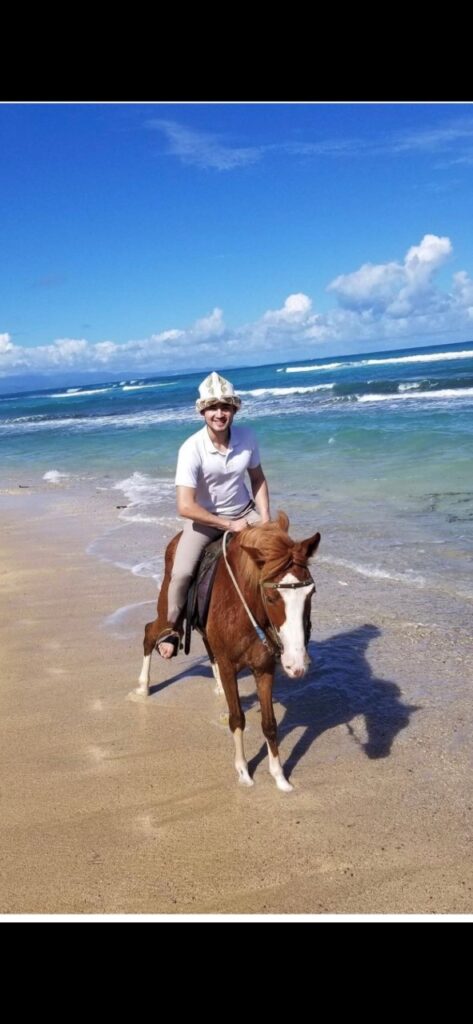
Any notable mentors, past or present, that you’d like to recognize?
My most impactful mentor I had was my manager at an internship I did in college. My manager was head of trading and imparted all sorts of wisdom and really transformed my ability to talk and connect with people. He taught me how to grab someone’s attention, speak to their needs, and always keep them engaged by showing them what they need and how you will provide it. He also taught me the importance of standing up for myself.
My current manager, Mitch Northrup, is also an important mentor. Mitch is the consummate leader: he supports his team, works side-by-side with us, project manages seamlessly and involves us in a lot of unique opportunities so we can expand our knowledge and grow. He puts abstract ideas of what a leader is into real practice.
Flash forward 20 years: what does the finance/fintech industry look like?
In 20 years, I see an even greater convergence between retail audiences and finance. From talking with industry veterans, investing used to be quite niche. Nowadays, thanks to innovation and technology, we have so many young and new investors participating in the financial markets and finding opportunities to build their wealth. Also the digital assets space is likely only going to continue to grow over time. At Nasdaq, we are helping build marketplaces outside of traditional finance. It just shows you how the idea of what is a market is constantly being redefined. Because of where I work, I get a front row seat.
How optimistic are you in your generation’s ability to step up and lead (companies, industries, governments) when the time comes?
I am highly optimistic in my generation’s ability to step up and lead because I already see instances of behavior that show we are more than ready.
The biggest misconception is expecting any new generation entering the workforce to mature into the same type of leader profile as older generations. Clearly, there’s important overlap. But recognizing and celebrating the differences between approaches to work style and commerce are hugely important especially when working together under the same roof. I think our generation will step up and take the finance industry by storm.
When you’re not doing incredible things at your job, what do you do to unwind and have fun?
When I’m off work, my biggest personal passion is teaching English. On the weekends, I lead classes online for people in other countries as practice and hoping to turn it into something more substantial in the future. I also do weightlifting, boxing, and am an avid soccer fan. I hope I can travel to London soon to catch my favorite team, Tottenham Hotspur, playing on their home turf!
Keon Shik (Kevin) Kim, Data Scientist, Machine Intelligence Lab
Briefly describe your educational background and work experience.
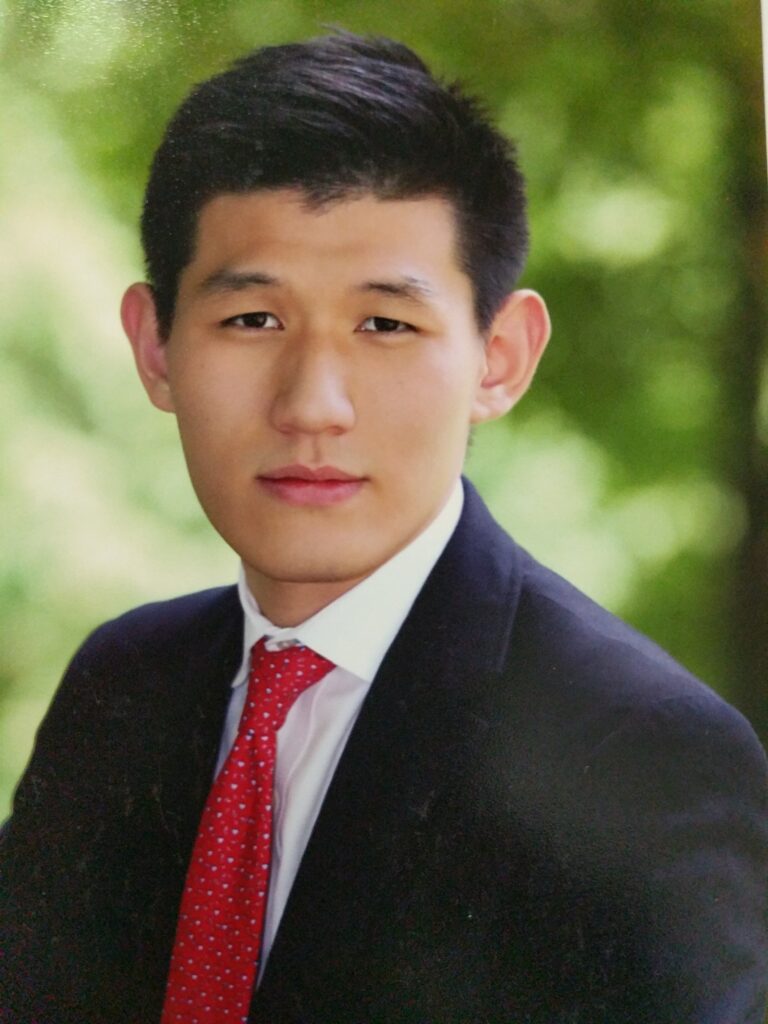
I graduated from Washington U. in St. Louis in 2019 with a B.S. in Computer Science. My very first job was actually as an entrepreneur. As a college freshman, I ran a PB&J delivery business. It was a lot of fun figuring out everything from product design and logistics to sales strategy and data analytics. In 2018, I interned with Nasdaq. After graduation, I joined as a Fellow, thinking I’ll go back to grad school. But I became a full-time employee instead and have been with the company for about two years.
How did you get interested in the world of finance / exchanges / fintech?
I started investing in high school. I really enjoyed learning what different companies do. As I learned more about the financial markets, I wanted to understand how the entire financial ecosystem works – why is it structured the way it is, what actually happens when I invest, where the money goes, who oversees the transactions, how private companies raise money, what purposes does trading serve, etc.
Coming back full circle on my PB&J business, two of the key problems I had to solve were – how much do I charge and how do I find buyers. I eventually realized that those two problems are exactly what stock exchanges are good at solving (by bringing buyers and sellers together and letting the market play itself out). That realization coupled with my interest in the financial ecosystem, got me hooked to Nasdaq.
What is your role and responsibilities at Nasdaq?
I’m a data scientist with the Machine Intelligence Lab (based in Boston). I focus on creating artificial intelligence products and services that can make capital markets more efficient. One of the key areas that I work on is designing AI and ML systems that power smart discretionary orders.
What is the best aspect of your job?
How impactful the work is and how dynamic the role is. In a way, the projects our team works on will shape the future of the financial markets through technology. I’m very grateful that to have this kind of impact early in my career.
How dynamic the role is: At our core, data scientists are researchers. But since the team is very production-focused, I get to interact with engineers, product managers, and operations. So I need to switch gears quite often and try to put myself in their shoes.

Any notable mentors, past or present, that you’d like to recognize?
My boss, Doug Hamilton. He gives his team a lot of autonomy to be creative, build out knowledge and give us really useful advice. Doug will also do regular ad-hoc huddles with the team where he breaks down how to approach topics like model design, project management, business and operations collaboration, etc. This is really useful for us.
Flash forward 20 years: what does the finance/fintech industry look like?
I think that the financial system will be much more vibrant as access to capital becomes a lot easier for everyone and investors (both retail and institutional) will have more choice on what they can invest in.
I am particularly interested in trends like DeFi and the emergence of retail investors as a major player (enabled by zero-fee brokerages, alternative investment platforms, and crowdfunding solutions). DeFi won’t solve every problem in the world, but I think there are many good use cases where it can help a lot of people.
How optimistic are you in your generation’s ability to step up and lead when the time comes?
I’m cautiously hopeful. Technology has made it very easy for people to pick up new skills and to find other people who share their interest. But I’m worried that this advancement has dwarfed the importance of soft skills that really define leaders. I am particularly worried that schools will further deviate from their function as social institutions helping to learn these soft skills. It would be nice to see students learn more about the broad impact of hard skills, e.g. the how and why of cooperation and communication.
When you’re not doing incredible things at your job, what do you do to unwind and have fun?
I like to cook, run, and play poker. You could say they represent what I value and try to improve on – cooking is a creative process, running is about persistence and goal-orientation, and poker requires strategic thinking.
Madeline Radner, Director, Market Intelligence Desk
Briefly describe your educational background and work experience.
I graduated from Fordham University’s Gabelli School of Business in 2018 with a B.A. in Applied Accounting and Finance. I started my career at Ipreo (now IHS Markit) as a Capital Markets Services Analyst in their post-grad rotational program. I then moved over to Nasdaq as a Research Associate on the New Listings team, where I was involved in the production of custom marketing presentations and trading data analysis for new listings, switch, and retention efforts. After two years, I moved over to the Market Intelligence Desk at Nasdaq, where I currently help Nasdaq-listed companies with insight on their stock’s trading.
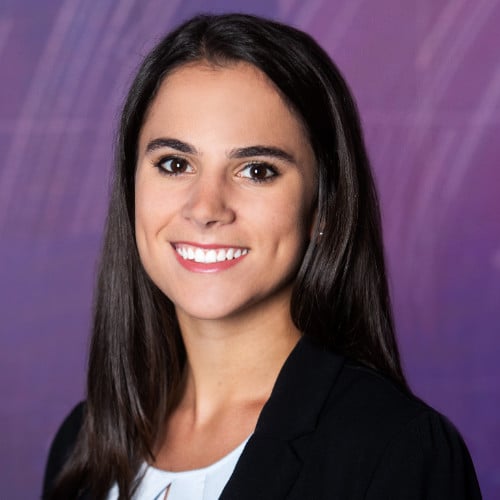
How did you get interested in the world of finance / exchanges / fintech?
I have always been a “numbers” person and enjoy problem solving and thinking analytically. I initially thought I wanted to pursue an accounting career; however after one tax class I realized it was not for me!
I interned at Nasdaq the summer before my senior year at college, and the exposure to the capital markets was a valuable experience. I realized fintech was constantly evolving, innovating, and facing new challenges – which is why I became interested in a career within the industry.
What is your role and responsibilities at Nasdaq?
I am currently a Market Intelligence Director at Nasdaq. Nasdaq’s Market Intelligence Desk provides listed companies with information concerning trading activity in their stock and industry, as well as insight into news and developments impacting the markets.
My colleagues and I on the desk cover all the Nasdaq-listed companies, from the micro-caps to the mega-caps, and we serve as the main point of contact for senior management teams regarding the trading in their stock. The Market Intelligence Team also executes each IPO and communicates with brokers during the first trade process to assist them as they determine the opening price for every stock. This year alone, the team has opened over 480 IPOs on Nasdaq!
What is the best aspect of your job?
It is an extremely exciting moment for a company to go public and ring the opening bell. I am fortunate in my current role to be a part of that moment and watch companies enter the public market for the very first time. The founders and CEOs have built their companies from the ground-up, and it is inspiring to see their success and vision come to life on IPO day.
As a point of contact for Nasdaq-listed companies after their IPO, it is rewarding to help senior management teams as they navigate the public markets and continue growing their business.
Any notable mentors, past or present, that you’d like to recognize?
My first manager at Nasdaq is someone who I would recognize as a notable mentor. She proactively set up meetings for me with different departments at Nasdaq, and provided me with so many opportunities to learn about the company and meet other colleagues. I am grateful to have had a mentor to educate and show me the “ins and outs” of the company at the start of my career. I truly value how she consistently helped me to progress my career, even if that meant moving on to another opportunity.
Flash forward 20 years: what does the finance/fintech industry look like?
Technology is going to continue to play a bigger role throughout all aspects of life in the future, including finance.
Just as we are starting to see today, I think there will be more collaboration between traditional banks and fintech brands, and we could see some interesting partnerships form in the future. Non-traditional financial companies such as Google, Apple, and Amazon will continue to evolve and could become trusted players in the capital markets.
Banks will always be a part of the process, but they will look to various fintech providers to power certain technologies and stay on the cutting edge of technology to better serve their customers.
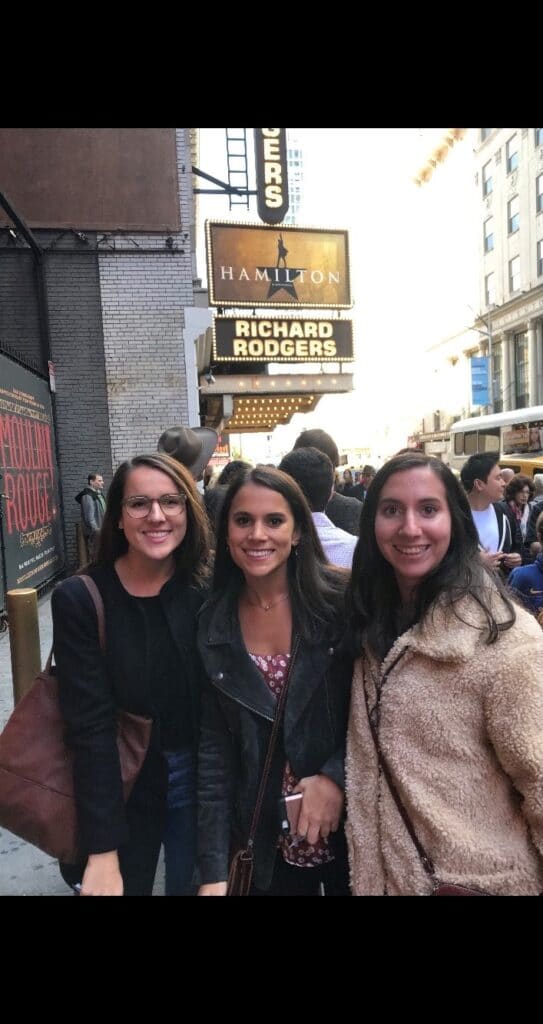
How optimistic are you in your generation’s ability to step up and lead when the time comes?
I am optimistic that my generation will step up and lead – especially at an earlier age than previous generations. I think Gen Z will become “go-getters” and will try to capitalize on their ambitions at the first chance they get. We are already starting to see this attitude in the prior generation. For example, Whitney Wolfe Herd, who at 31 years old recently became the youngest female CEO to take a company public in the US. We Gen Zs are watching this happen and finding it extremely motivating to conquer our goals and become the world’s next leaders.
When you’re not doing incredible things at your job, what do you do to unwind and have fun?
In my free time, I enjoy running, cooking, travelling, and exploring everything NYC has to offer. I also like to spend time with my family at the beach on Plum Island in Massachusetts.
Seamus Scaring, Senior Product Analyst, North American Markets, U.S. Options
Briefly describe your educational background and work experience.
I grew up on Long Island and after graduating from Chaminade High School I attended Boston College where I majored in political science with a focus on international economics. Prior to joining Nasdaq’s Options team after graduation, I spent time interning in business and trading roles with Catalant Technologies and Next Level Derivatives.
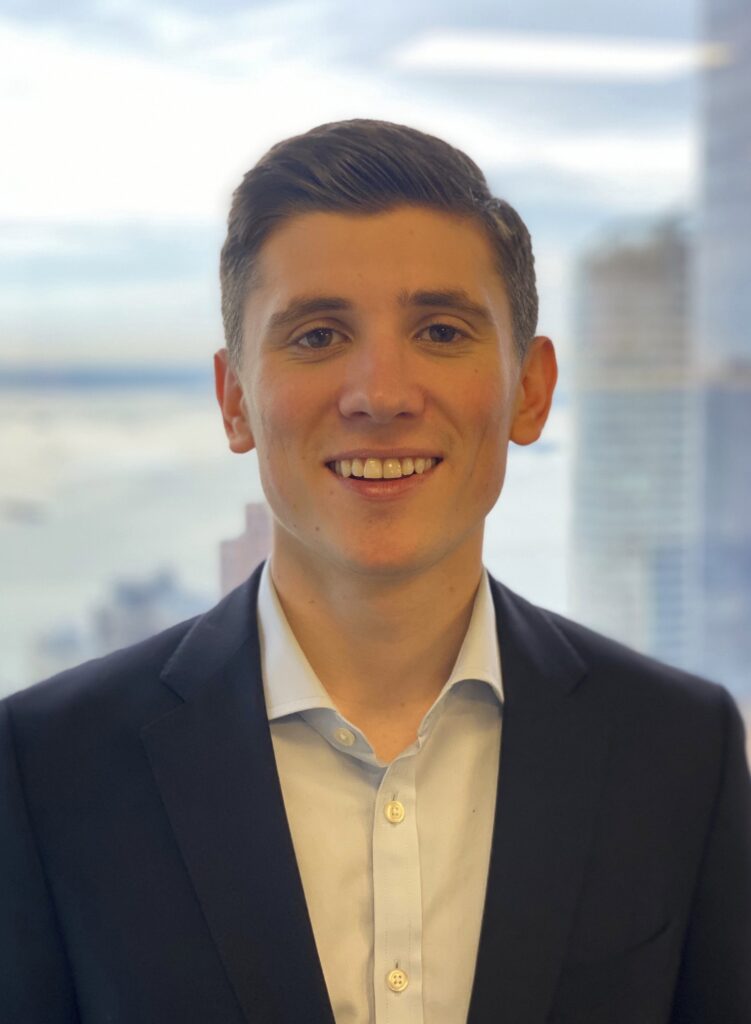
How did you get interested in the world of finance / exchanges / fintech?
My initial interest in the world of finance began in middle school, when a guest speaker introduced us to the idea of becoming a company shareholder. When I entered high school my enthusiasm for the markets grew, as I began reading news outlets and following the movements of specific names and sectors.
I eventually convinced my parents to allow me to invest in some basic, blue-chip names to establish first-hand experience as an investor. Interning at Nasdaq allowed me to learn the complexities within US market structure, and how each unique participant contributes to the overall ecosystem.
What is your role and responsibilities at Nasdaq?
I am currently a Senior Options Analyst working with both our equity and index option businesses. This role involves two focus areas: product development and market analysis.
From a product development standpoint, we are tasked with building and managing Nasdaq’s index options product suite, including Nasdaq 100® Index Options – NDX, NQX, and XND. As part of this, I’m responsible for conducting customer research, managing partner relations, and utilizing analytics to help bring new products to market. The second focus, market analysis, consists of proactively examining functionality and pricing initiatives across our six options exchanges to improve the markets for our customers.
What is the best aspect of your job?
The client exposure within my role is invaluable in terms of expanding my knowledge of this vast market ecosystem. As mentioned previously, each market participant is extremely unique in the way that they look to engage and benefit from the public and private markets. I have been able to establish a ton of strong relationships within the industry that not only give me a lens into their thought processes, but also support me as I grow professionally and personally through my career.
Any notable mentors, past or present, that you’d like to recognize?
Since the day I began my internship, John Black has been a tremendous mentor and friend. Throughout his career he has served numerous roles within the inter-dealer broker industry, and has a very unique perspective on the product creation process. I have been lucky enough to learn from him, both personally and professionally, and I look forward to continuing to work together as we explore new opportunities within the derivatives landscape.
Flash forward 20 years: what does the finance/fintech industry look like?
When I think of the future of our industry, two thoughts come to mind.
The first prediction would be a stronger harmonization between international markets. Due to various technology and regulatory hurdles international markets are very segmented, especially with their product offerings. The key to this harmonization will be the growth of digitized payment methods that allow cross-border collaboration between markets.
The second prediction would the expansion of the sophisticated investor. Education is the key to expand and improve investor access to our capital markets. The new age of technology gives investors the ability to develop a strong knowledge base with one click of a button. Many new, easy-to-understand platforms are available and looking for ways to help de-bunk some of the myths that have surrounded our markets, specifically within derivatives, while also improving the overall sophistication of their investor base.
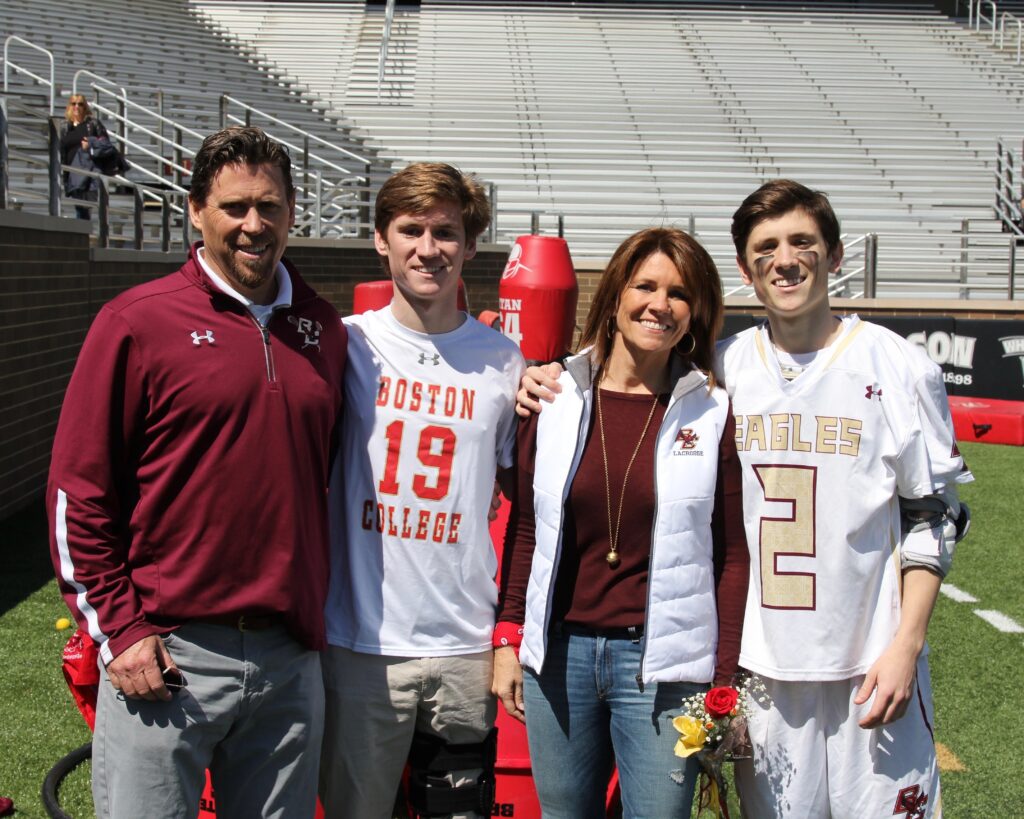
How optimistic are you in your generation’s ability to step up and lead when the time comes?
I’m certainly an optimist about our generation’s ability to lead, particularly given the overall curiosity and eagerness to learn that I have witnessed between college and our early careers. We live in an age of information overload, where we have the ability to grasp almost anything with the click of a button. I think these various tools will continue to help our generation become well-versed in topics that are not necessarily part of our day-to-day responsibilities. Curiosity will lead to continually setting the bar higher and reaching new milestones throughout our careers.
When you’re not doing incredible things at your job, what do you do to unwind and have fun?
I am a very competitive person, so sports are a perfect outlet. Golf, basketball and snowboarding are all great ways for me to unwind and hang out with friends. I also enjoy reading or listening to biographies of modern-day entrepreneurs. Most of the companies that we rely on in our everyday lives began as a solution to a simple problem, and each has an extremely unique story of how they grew to dominate their respective marketplaces.






